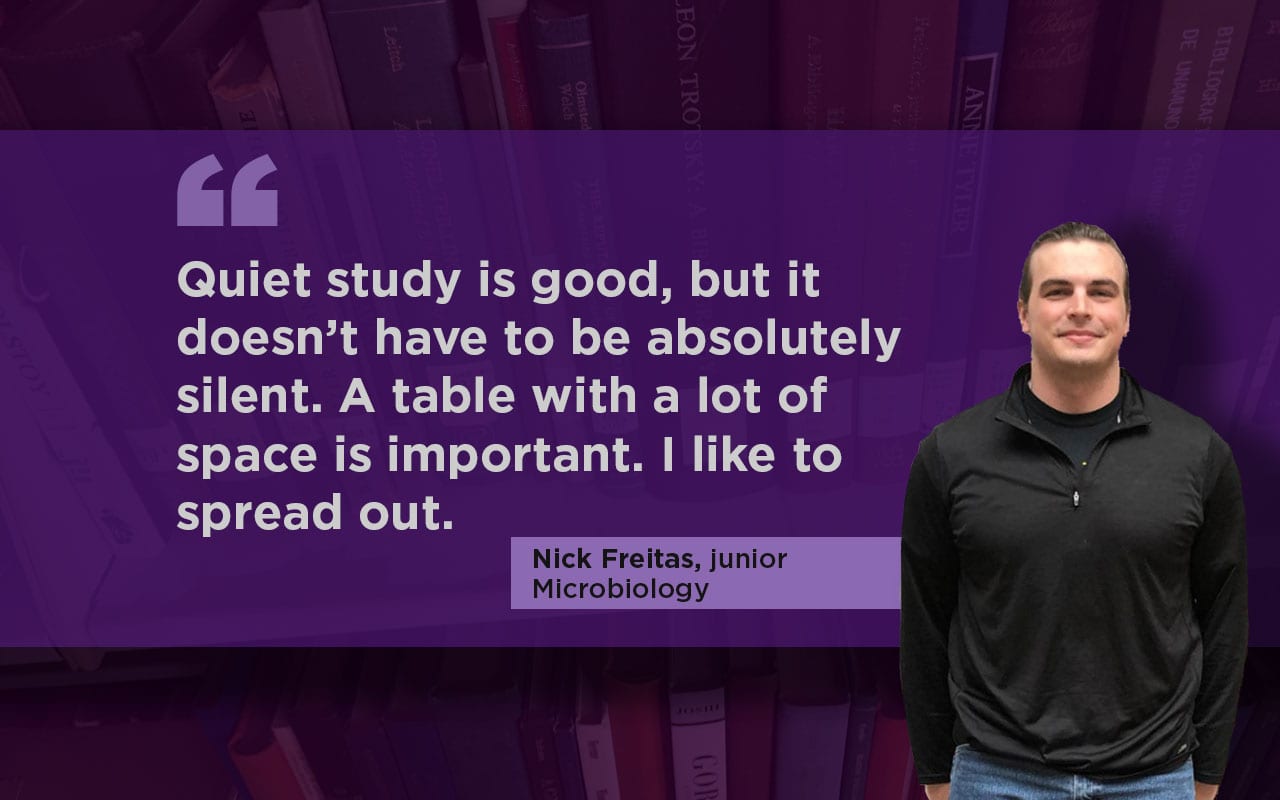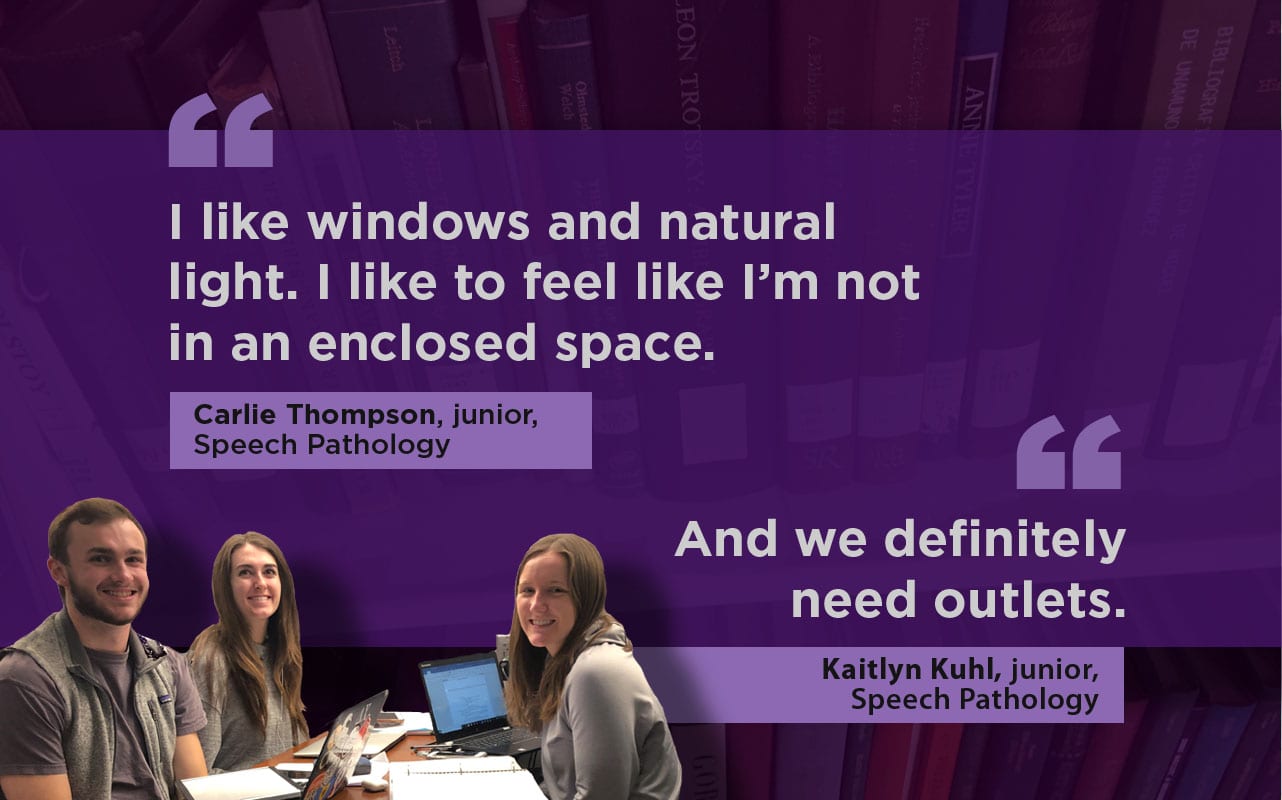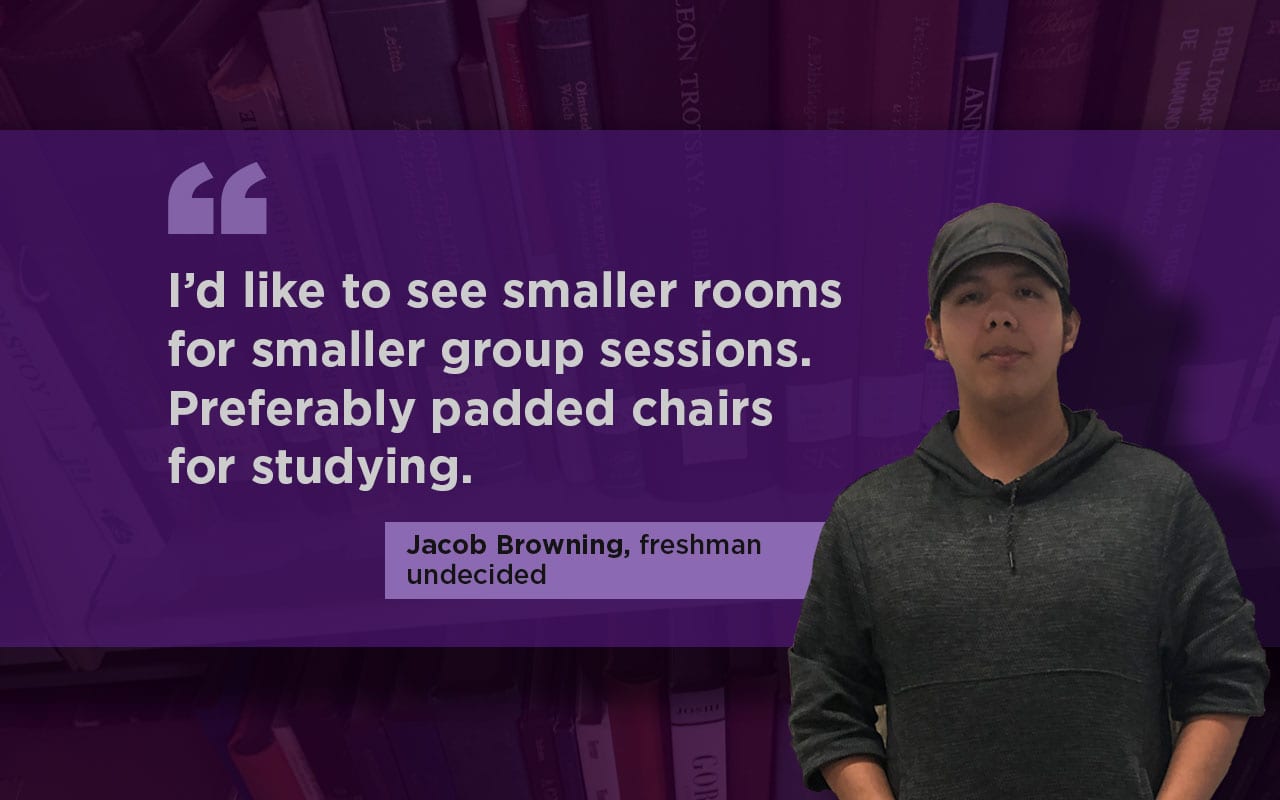On Feb. 13, 2019, architects from PGAV joined K-State Libraries all-staff meeting to discuss next steps for the Hale Library renovation.

The key take-away: Construction on most of the first floor has been scheduled. Meanwhile, designs for floors two through five are under development.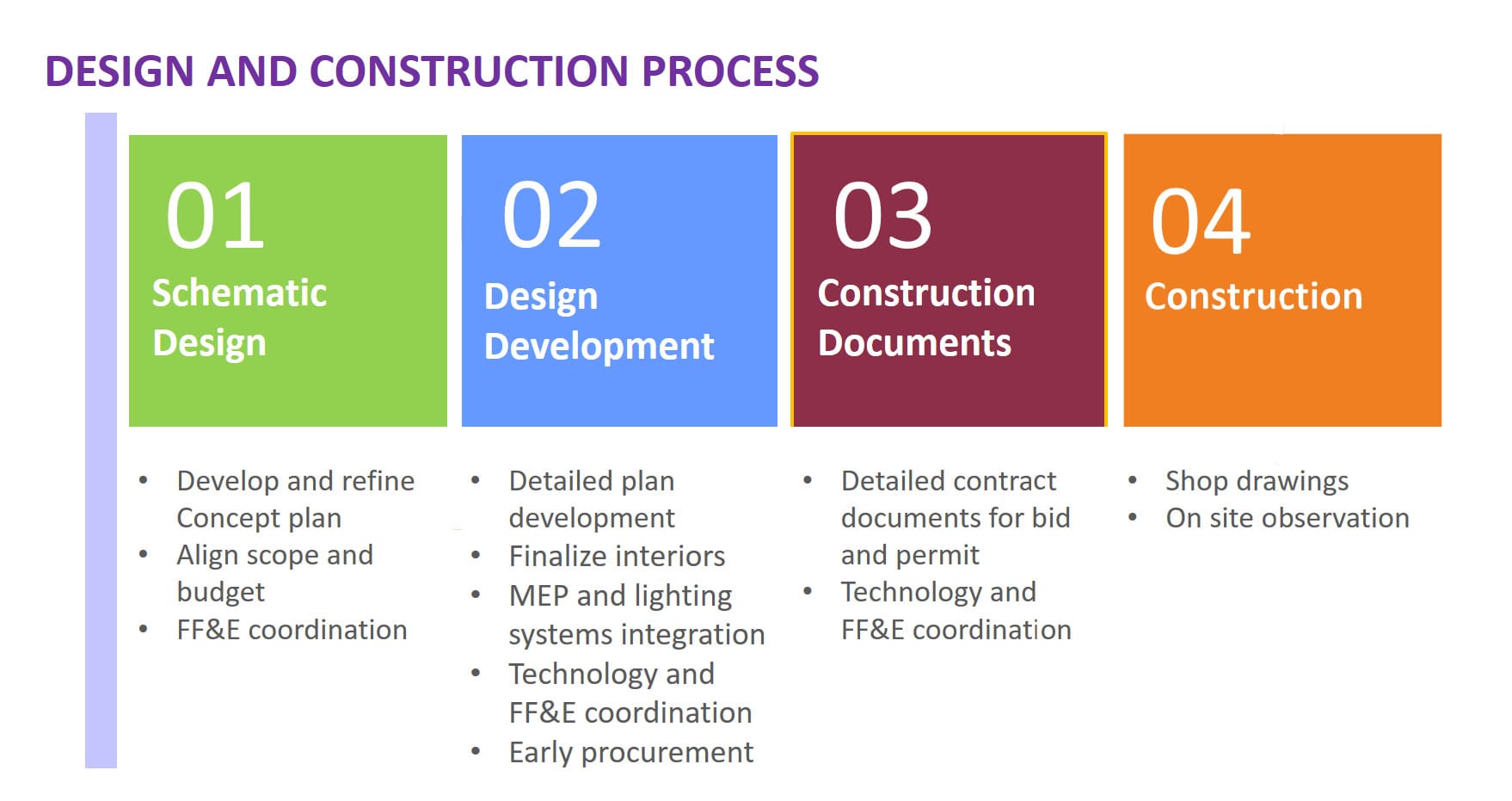
So in relation to the graphic above, we are at the end of Stage 3 when it comes to the first floor, and between Stages 1 and 2 for the other floors of the building.
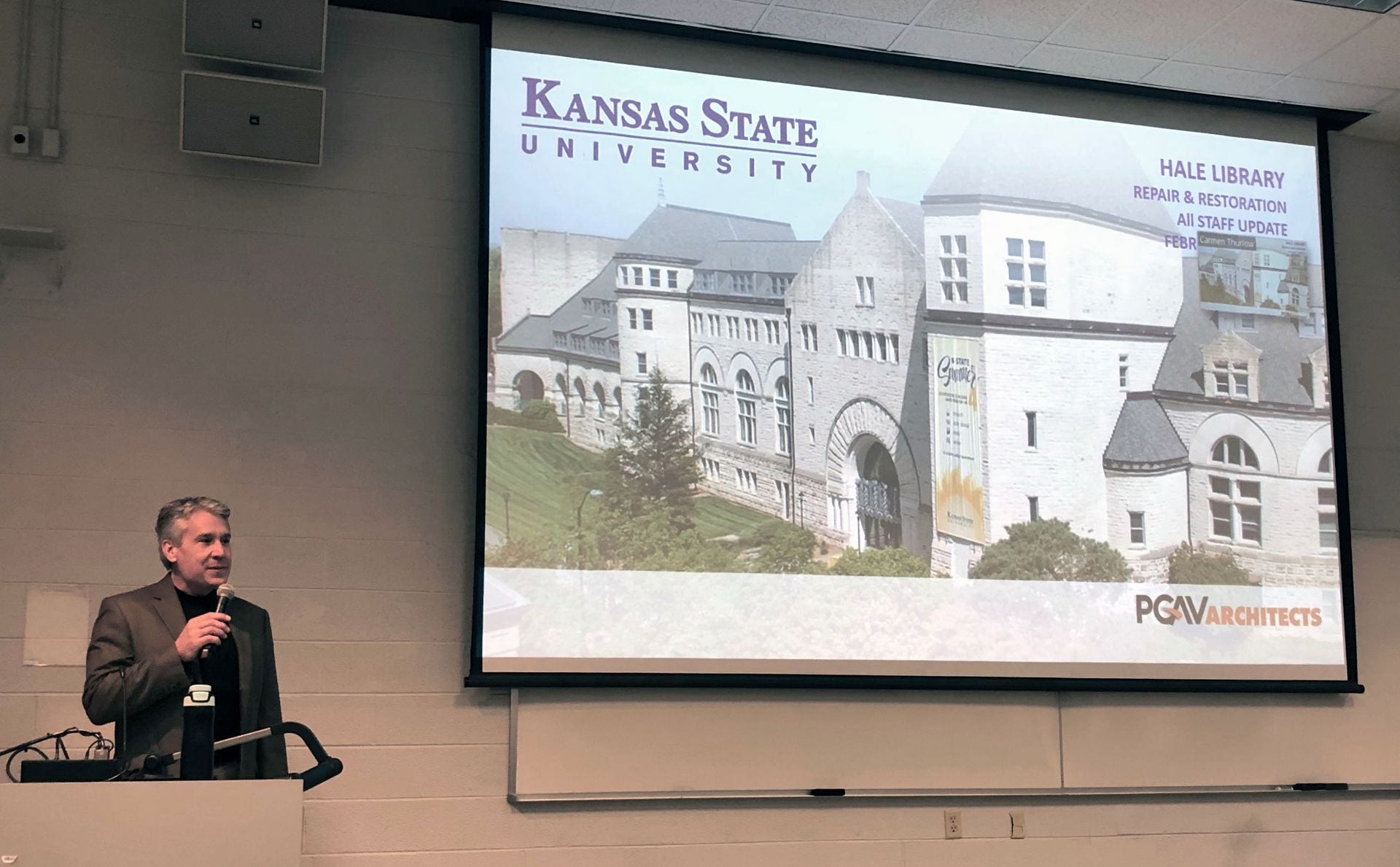
Who are the architects in charge of this process? PGAV is based in Prairie Village, Kan., and they’ve worked on the design of more than 25 libraries, archives and special collections facilities in the last several decades.
In their work on Hale Library, PGAV has helped establish this timeline for target reopening dates:
- Portions of first floor: Fall 2019
- Second and fifth floor: Spring 2020
- Third and fourth floors: Fall 2020
- Historic Farrell Library, all floors: Late 2020/early 2021
Note that Farrell Library, the 1927 portion of the building that includes the Great Room, will open last: The plaster walls are still wet, and plaster dries very slowly. The process can’t be rushed if the integrity of the material is going to remain intact. The historic conservation of the Great Room murals and the woodwork is also very complicated.
But rest assured that the new Hale Library will incorporate the things that K-State students ask for most. We’ve spent nine months in concert with PGAV and the university community to develop spaces that fill a wide variety of needs.
Here are just a few of those desires as expressed by K-State students:
For years, noise complaints have been one of the top issues reported to the Hale Library Help Desk. Third floor was the quiet floor, but because of the way sound traveled through the building, it was never truly quiet.
Now we have the opportunity to rezone Hale Library’s noise levels: In the renovated building, first and second floors will be the most active and bustling. Third floor will be quiet, with some talking allowed, while fourth floor will be the place to go for really intense quiet. That means students like Nick might want to try a big table on third floor for an optimal study experience.
One of Hale Library’s amenities that students say they miss most since the fire is the white boards. They were always in high demand—which also meant we had to replace them frequently.
In the new building, students like Erin will have plenty of white board options to choose from. In fact, Hale Library will have entire walls covered in white boards, including long stretches on first and second floor. Those walls will be punctuated by strips of limestone that offer a glimpse of the 1955 addition’s exterior that was covered in subsequent expansions.
Hale Library spaces were repurposed multiple times over the years. In the most recent iteration, the first and second floors of Historic Farrell Library housed collections and office cubicles. That meant that the larger K-State community rarely had the opportunity to appreciate the gorgeous natural light and architectural details in those spaces.
In the renovated 1927 building, the first and second floors will be converted into public gathering spots featuring some of our high-use collections like juvenile literature. They will also be outfitted with plenty of soft seating and tables so students like Carlie can study in a room flooded with natural light.
Another retrofit: When the 1997 Hale Library renovation occurred, no one could have predicted how high the demand for outlets would be 30 years later: Today’s students want to charge their laptops and phones while studying. Since the entire building has to be rewired, we will be able to increase the number of outlets in Hale Library exponentially!
First-year students like Jacob haven’t ever experienced Hale Library. When it reopens, one of the major new improvements will be the reservable rooms that will accommodate groups of all sizes.
In fact, the first floor, which reopens in fall 2019, will feature at least a dozen of these spaces, and more will be spread throughout the building. Students will finally have a private spot equipped with video technology to practice presentations, conduct interviews and meet with study groups.
These are just a few of the types of improvements we’ve been planning with PGAV, and we look forward to featuring progress on construction of these spaces in the coming months.
